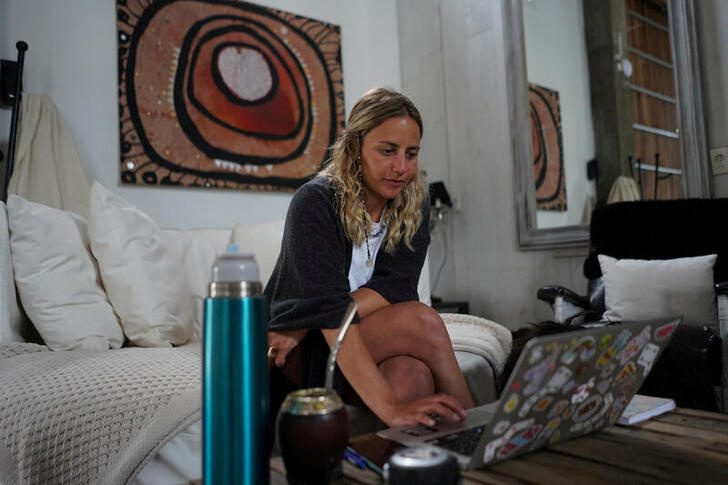By Lauren Young
NEW YORK (Reuters) - How can companies leverage the lessons of 2020 to fundamentally reimagine work and boost productivity?
Deloitte’s 2021 Global Human Capital Trends report, released on Thursday, finds that 72% of executives see "the ability of their people to adapt, reskill and assume new roles" as a priority for navigating future disruptions.
Yet only 17% of these same executives said that their organization was “very ready” to adapt and reskill workers to assume new roles, the report said.
"Productivity was basically in stagnation, if we just isolated the U.S., for the past decade," noted Erica Volini, principal and global human capital leader at Deloitte, a consulting firm. "And then in Q2 of this year, we saw the highest spike in productivity levels since 1971."
Volini attributes the productivity boost to new ways of working, including heavy degrees of collaboration, creativity and flexibility, as well as the ability "to get together across functional silos."
"People are working differently, and therefore increasing their productivity, increasing their ability to drive new outcomes, because they're working in ways that are natural to them, versus working in ways that are natural to machines, or natural to old processes that have existed before," Volini added.
Another key finding in the study: Leaders have moved from prioritizing work-life balance to designing well-being into work — and life — since March.
Among executives, seven in 10 said the shift to remote work had a positive impact on well-being, the report said.
"Executives believe that the shift to remote work in of itself was positive," Volini noted.
In addition, 69% of executives reported that they implemented policies in 2020 to empower workers to better integrate their personal and professional lives.
"Leaders need to look for ways to integrate workers’ physical, mental, financial and social health into the work design," Volini said. "This could come in the form of the way you compose teams, the way you put together work schedules, the way you embed well-being into performance management and rewards, while always reinforcing that well-being is a priority in the way you work."
As an example, Volini cites Starbucks Corp (NASDAQ:SBUX), which shares schedules with employees two weeks in advance.
"If someone is too far of a distance away from the store, then they'll move to another location," Volini noted. "That's an example of how you can tie scheduling into a focus on well-being."

(Completed by more than 3,600 executives in 96 countries, Deloitte's Global Human Capital Trends report included responses from more than 1,200 C-suite executives and board members, in addition to other management functions. For the first time in the report’s 11-year history, business respondents (56%), including 233 CEOs, outnumbered HR respondents (44%) in the survey – underscoring the growing importance of human capital in organizational decision-making.)